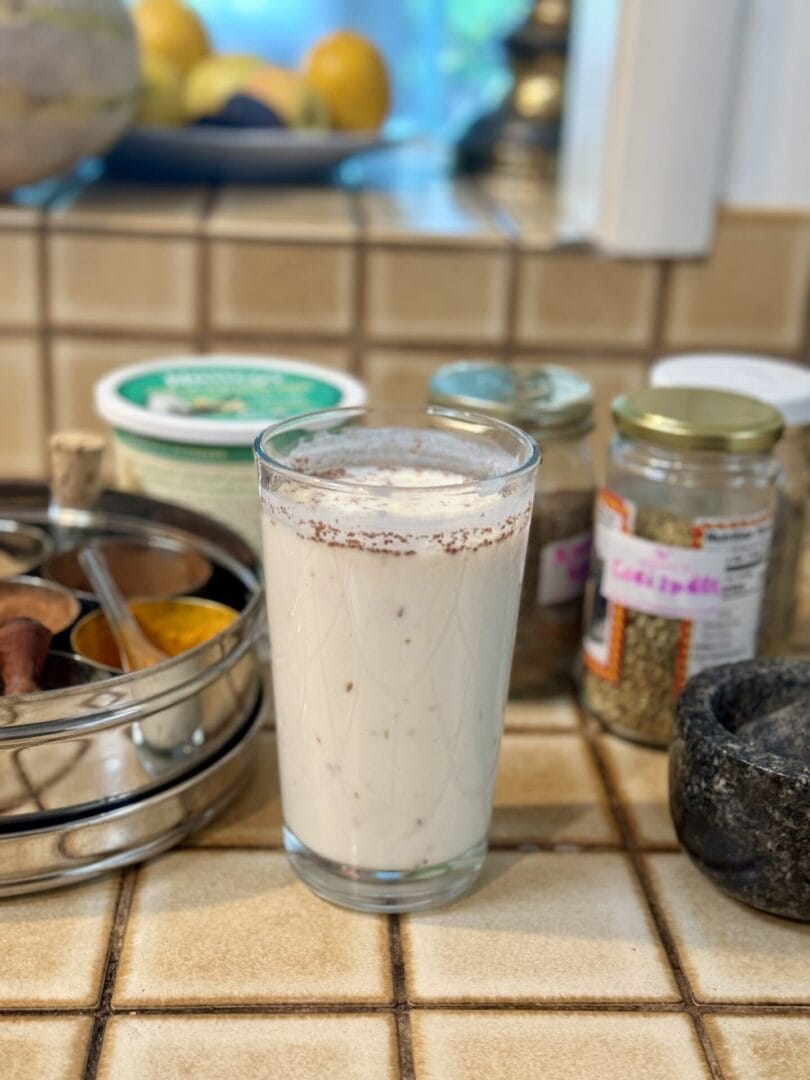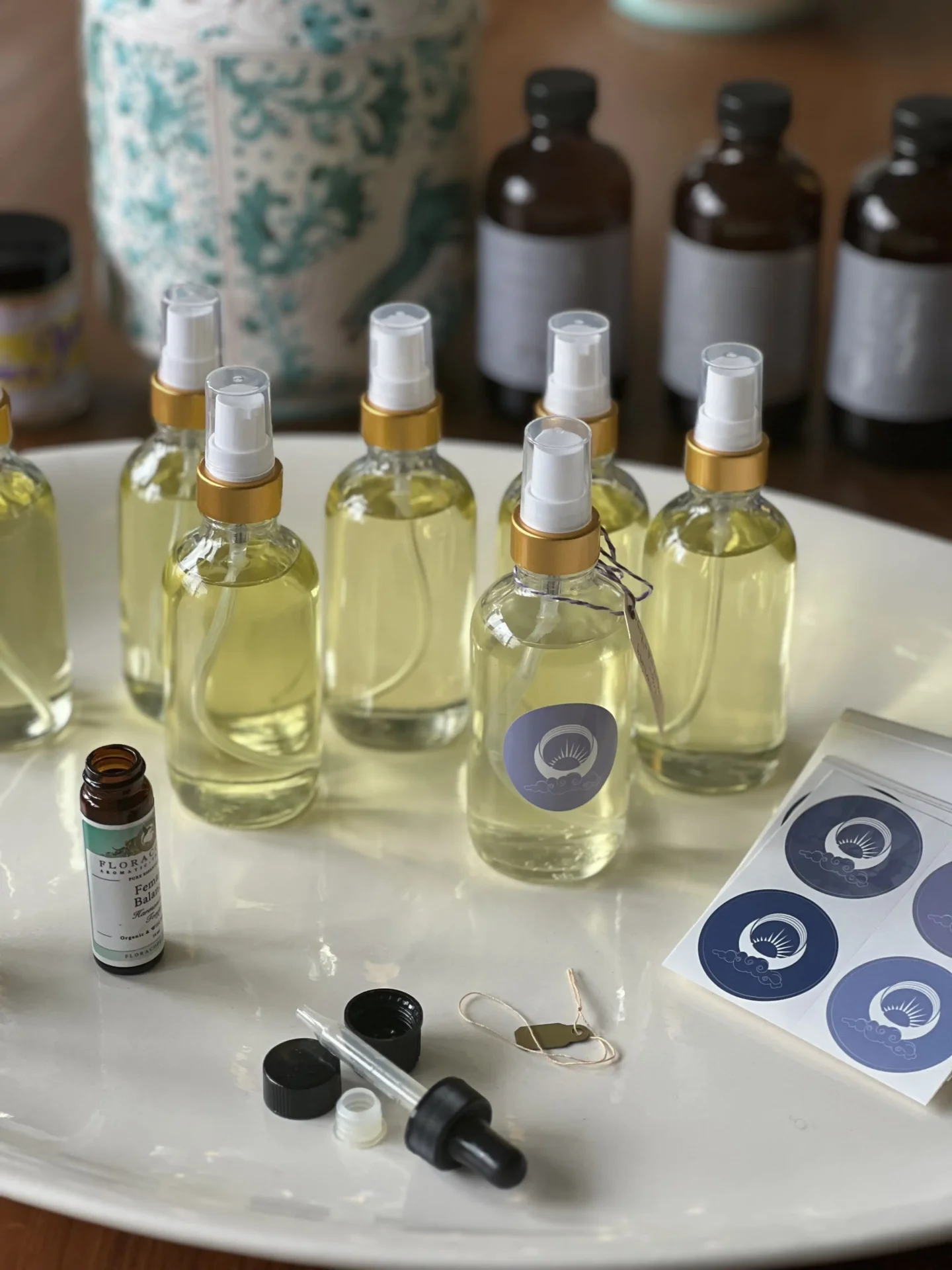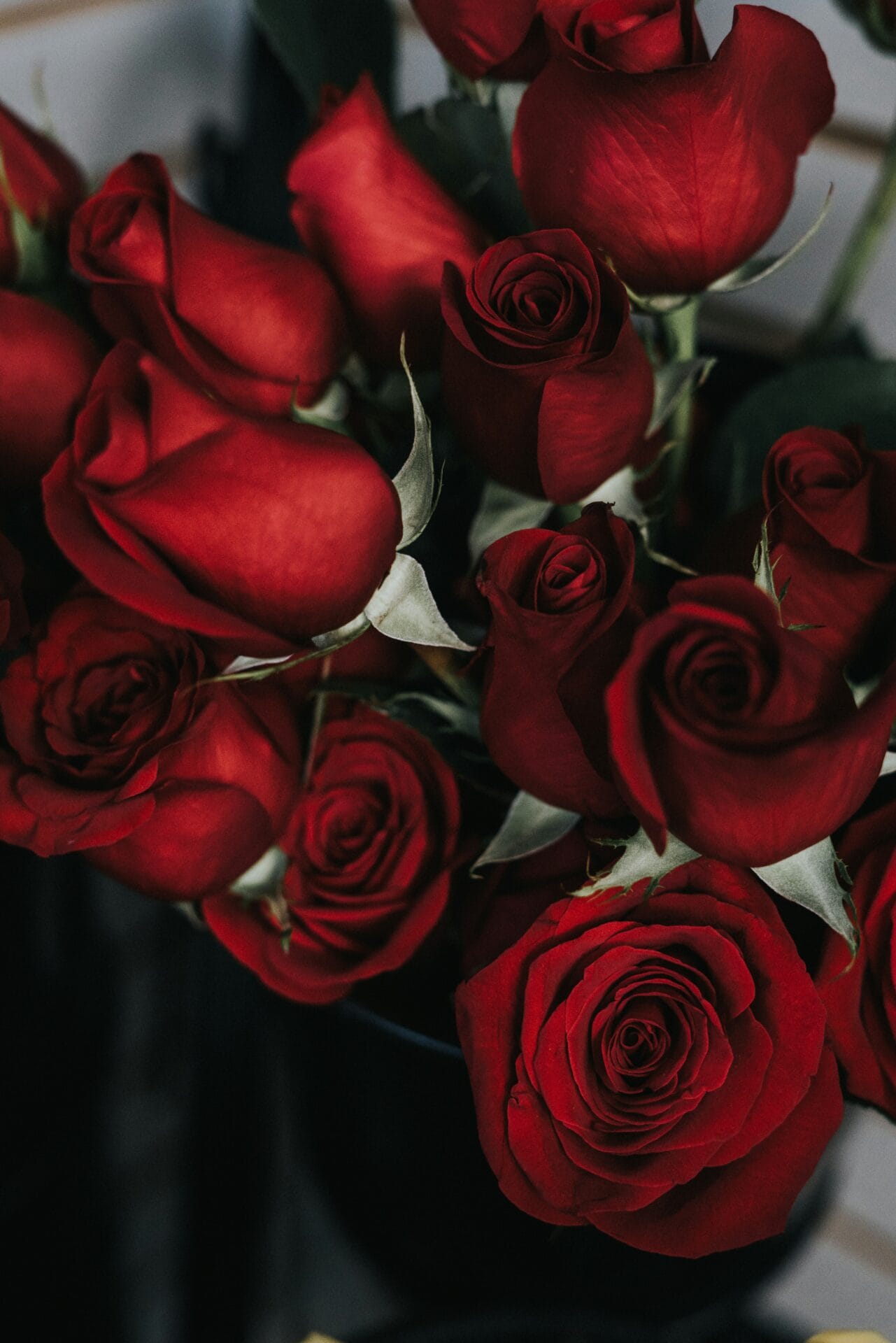I have developed this specific blend of herbal tea for its medicinal properties and its delightful flavor and rejuvenating effects. It is invigorating, refreshing, and, importantly, relaxing to the nervous system. This means it energizes and calms you simultaneously, allowing you to feel centered. I appreciate the positive impact it has on my body when I drink it. After enjoying a cup, I can either indulge in a rejuvenating nap or stay alert for a day filled with mental and physical engagement.
Here is some essential information about how the herbs in this tea can support your body…
The herbal tea blend I have developed (Recipe below and a video tutorial here) will enhance the stability of your body, moisturize dryness in your skin, including the yoni, improve sperm quality, calm the mind, reduce gas, and serve as a mild aphrodisiac.
Herbs and spices are often overlooked in our modern Western diet, yet they are crucial for our health due to their beneficial properties. Furthermore, herbs enhance the flavor of food, making it more enjoyable and enticing. Think about how difficult it is to eat something that is under-salted, and consider how impossible it is to consume something that is excessively salted.
There are different methods to make tea. For this Rejuvenating Herbal Tea, you will need to prepare a decoction. A decoction involves boiling the herbs or ingredients together. The longer the decoction is boiled, the stronger the tea becomes. Strong decoctions are made by boiling off ¾ of the water, while moderate decoctions are made by boiling off ½ of the water. On the other hand, a mild tea is created by boiling off ¼ of the water. The cooking time is shorter for mild decoctions, resulting in a lighter flavor and leaving more water in the pot after cooking.
Making my Rejuvenating Herbal Tea Recipe is a 3 Steps process.
Step 1:
Begin by putting 4 cups of herbs in a pot on the stove.
Step 2:
Add the following ingredients to the pot:
- Shatavari: 4 sticks or ½ teaspoon ground
- Cinnamon sticks: 2 sticks or ½ teaspoon ground
- Ginger: 1 slice root or ¼ teaspoon ground
- Licorice: 2 teaspoons
- Ashwagandha: ¼ teaspoon
- Nutmeg: ¼ teaspoon
- Clove: 5 cloves or a pinch of ground
Step 3:
Cook the herbs until they reach a low boil, and then continue cooking for 10 minutes. Some of the water will evaporate, leaving behind the tea. Strain and serve.
A few special notes on homemade (DIY) tea making:
- If you prefer a stronger tea, add more herbs or reduce the amount of water.
- If the tea is too strong for your taste, simply add water to dilute it.
- And yes, herbal tea counts as water intake for the day!
Here is some scientific information regarding the benefits of each ingredient:
- Shatavari: This herb is beneficial for joint discomfort and the nervous system. It acts as a diuretic, anti-diarrhea agent, and demulcent, providing moisture to dryness and irritation. It is highly regarded for its effects on the female reproductive system, particularly during pregnancy, breastfeeding, and menopause. It also aids in sperm production and is considered an aphrodisiac.
- Cinnamon: It functions as a demulcent, circulatory stimulant, antioxidant (removing damaging agents in the body), and anti-inflammatory (blocking the entry of certain harmful substances).
- Ginger: Known as a carminative, ginger helps alleviate gas and improves digestion and nutrient absorption.
- Licorice: It possesses anti-inflammatory properties, acts as a demulcent and diuretic, promotes tissue building, supports the female reproductive system, and contributes to eye and vocal health.
- Ashwagandha: This herb has anti-inflammatory effects, acts as an aphrodisiac, and serves as a nervine tonic and sedative. Additionally, it aids in tissue building.
- Nutmeg: Nutmeg relieves pain, soothes indigestion, enhances cognitive function, detoxifies the body, promotes skin health, alleviates oral conditions, reduces insomnia, and boosts immune system function.
- Clove: Clove aids in digestion, acts as a carminative (reducing gas), serves as an expectorant (helping to reduce respiratory mucus), assists with nausea, and is considered an aphrodisiac.
I would love to know how you like the tea and if you made any adaption to this recipe. Reply here or send me an email: Marisa@shelteringskys.com
Check out my yoga website to learn more about what I am teaching, my weekly live schedule and more here.
Join my community and get access to my weekly Blog drop here and get a copy of my Yoga Journal too. The Journal is designed to help you keep track of your healthy lifestyle practices.







